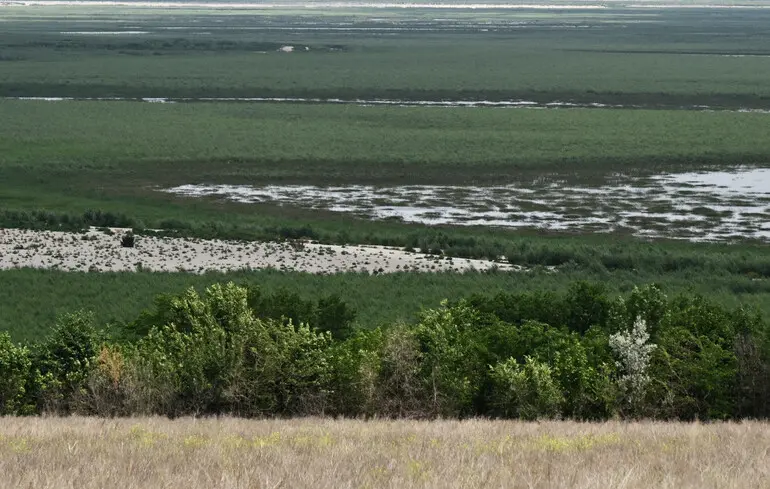The Konsequences of the Kakhovka Hydroelectric Dam Collapse: Environmental and Economic Fallout

The destruction of the Kakhovka Hydroelectric Power Plant (HEP), which occurred in June 2023 as a result of a deliberate explosion by Russian forces, marked one of Ukraine’s most severe technological disasters in recent times.
This catastrophic event has far-reaching environmental, economic, and social repercussions that will impact Ukraine’s ecosystems and economy for many years to come.
A key concern is the potential re-flooding of the reservoir, which could lead to the destruction of unique floodplain forests—valuable biodiversity hotspots currently undergoing natural regeneration on the site of the former reservoir.
Experts warn that if subsequent flooding occurs within 10 to 20 years, Ukraine risks incurring damages exceeding one billion dollars, primarily due to the loss of ecosystems and water resources.
Scientific investigations initiated immediately after the dam’s destruction reveal that at the site, valuable floodplain forests and other rich ecosystems are actively forming, but remains under threat of complete submersion if a full-scale flooding occurs again.
Authorities and environmental scientists urge caution and advise against rushing to restore the reservoir to its previous state without thorough environmental and economic assessments.
The goal should be to preserve the already established ecosystems and utilize natural resources efficiently — not to repeat the mistakes of the past with Soviet-style gigantism.
Academician Yakiv Didukh from the National Academy of Sciences of Ukraine emphasizes the importance of a balanced, well-considered approach focused on sustainable use of water resources for nuclear power plant cooling, irrigation, and navigation.
He further stresses that the catastrophe at Kakhovka is not only an ecological crisis but also an economic one, with damages amounting to over $11 billion, according to government and UN reports.
The incident has led to the loss of up to 40% of Ukraine’s freshwater reserves, escalating environmental and social risks.
At the same time, there is a critical shortage of specialists in ecology and water management, exacerbated by the reorganization of ministries and the dismantling of the Ministry of Environmental Protection.
Experts warn that economic and agricultural interests may overshadow conservation efforts, thereby worsening the situation.
They call for decisions regarding the future of the reservoir’s bed to be made based on comprehensive ecological and economic analyses, prioritizing the preservation of newly-formed ecosystems as the basis for sustainable regional development.
The daring act of sabotage has thrust Ukraine into a difficult dilemma with decisive implications for national environmental security.
Only meticulous planning and responsible decision-making can mitigate the long-term adverse effects of this environmental disaster.

